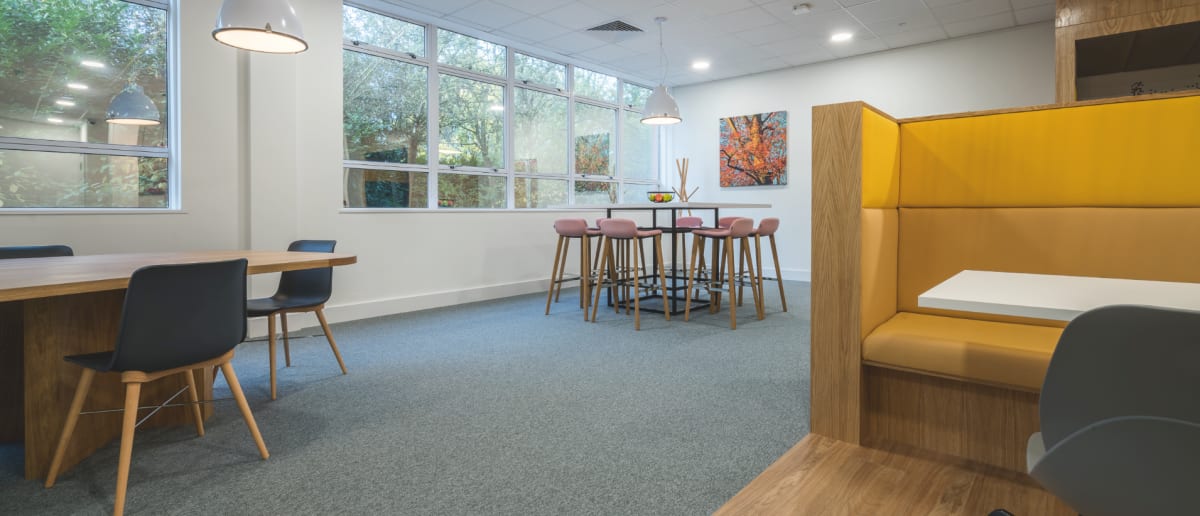The demand for flexible workspace across the world has seen record growth in the last few years, with flexible working spaces set to grow up to 30% annually for the next five years and beyond, according to global real estate giant Jones Lang Lasalle (JLL). These impressive statistics are why franchising is becoming the natural next chapter of the flexible workspace story and why it will be one of the key accelerators that will aid this growth.
Traditionally, franchises have been considered the preserve of the consumer lifestyle industries – retailers, restaurants and hotel chains are common investment options due to the brand recognition that a lot of businesses in these sectors hold. But with the soaring global demand for flexible workspace in major hubs and suburban locales and the global mobile workforce set to hit 1.87 billion people by 2022, current franchisees and would-be franchisees would do well to consider other options available to them, in order to benefit from this huge growth potential.
Flexible workspaces are now becoming woven into the fabric of our societies, offering flexibility to businesses and their staff whenever and crucially, wherever they need it. A new trend is emerging that is seeing an increasing number of co-working spaces housed within vibrant retail shopping centres offering opportunities for those who want to work in bustling hubs with many amenities on tap. With 50% of all employees in the UK working remotely most of the time by 2020, it won’t be long before we see high streets becoming destinations for both serviced offices and retailers.
Along with new franchising opportunities, comes a new audience. The Millennial generation is fast being seen as the future of the franchising market for a variety of reasons, chief among them, their desire to work flexibly, as well as their affinity with new technologies.
Franchising offers opportunities on a truly global level. Research into the UK franchising market from the British Franchise Association (BFA) and Natwest Bank, supports this view, with much of the growth driven by female entrepreneurs. The franchise model bridges the gap between experience and ambition – franchising provides the confidence of an established successful business model so entrepreneurs do not need to start from scratch, nor do they need to be an employee. They’ll have the opportunity to pour their own enthusiasm and hard work into a concept with the confidence of a wider business behind them.
Furthermore, the study reports that UK franchising is a business sector operating at ‘record heights’ with the total contribution of franchising to the UK economy estimated to be in excess of £17 billion, up more than £2 billion since the previous study in 2015. There has also been a significant increase in the estimated number of people working in franchising, with over 700,000 people employed in the sector.

In Canada, franchise systems are rising in popularity as they offer high returns and prospective franchisees are actively seeking opportunities in growing industries, according to the Canadian Franchise Association.
Hong Kong has also seen steady and reliable growth in a variety of popular franchising sectors including hotels, retail, education and wellness and healthcare. In the services sector, there is a growing trend for multi-brand franchising, whereby the franchisor group acquires complimentary service brands. The South China Morning Post reported in 2017 that coworking in Hong Kong is increasingly becoming an indicator of where forward-thinking businesses take up roots, with corporate real estate and portfolio strategies increasingly looking at ways in which they can activate and maximise space, as companies implement new working strategies, including flexible working.
Entrepreneur.com’s annual Franchise 500 is the definitive ranking of the strongest franchise brands and in its latest report, it finds that we are long past the days of associating franchising with fast-food restaurants and as a US phenomenon. In fact, the franchising industry is constantly being rejuvenated with new players as it moves towards becoming truly international, with 36% of those businesses listed, franchised outside the US.
Flexible, serviced offices have undoubtedly begun to emerge as investable asset classes for institutions, with unique service offerings and income potential available to make the most of. With IWG’s 30-year track record, the operating model is proven, demonstrably successful and opportunities for growth are significant on local, regional and national scales. We could soon see flexible workspace taking its place alongside hotels and student accommodation as a separate asset class and a core part of institutional portfolios.
It is unquestionable that the modern professionals and businesses want to work flexibly. It is even more thrilling prospect that among them are potential franchisees, looking to get involved.
To find out more about IWG’ network growth through franchising, please visit our website






